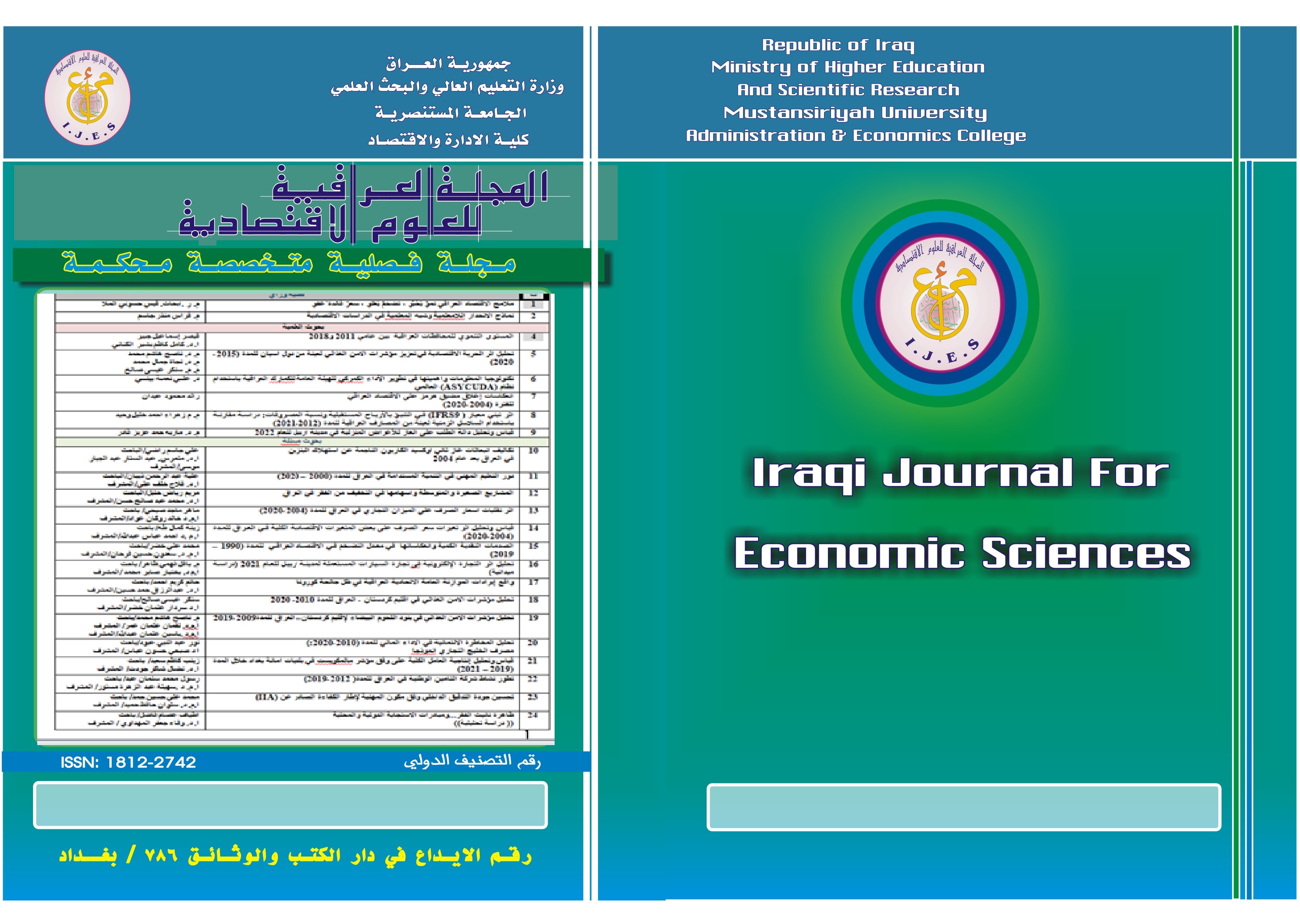Repercussions of closing the Strait of Hormuz on the Iraqi economy For the period (2004-2020)
Keywords:
Strait of Hormuz, transit system, foreign trade, gross domestic product, foreign exchange reserves, public revenueAbstract
The previous political crises and the increase in tensions around the Strait of Hormuz prompted the Arab Gulf states to take several measures, albeit limited, to reduce dependence on the Strait of Hormuz, as the total oil flows passing through it amounted to (33.5%) of the total global oil production to consuming markets, where it is estimated that the passage of Between twenty or thirty oil tankers per day with a load ranging between (17-20) million barrels of oil carried by sea, so the countries bordering the Arabian Gulf must find alternative outlets for their maritime trade of goods and services in addition to their oil trade.
The Arabian Gulf is the only sea outlet for Iraq for the passage of its oil and commodity exports and imports through the Strait of Hormuz, as the closure of this strait for any matter whatsoever is a warning card raised in the face of Iraq’s rentier economy, which will be completely paralyzed, as most of the crude oil exports are exported through the ports of Basra in southern Iraq, which overlooks On the Arabian Gulf, passing through the Strait of Hormuz, which constituted an average of (97.3%) of the total oil exports total, in addition to the impact of Iraq’s sea-borne commodity exports and imports, which generates pressure on the Iraqi economy to the point of suffocation. Iraq exports about (95%) of its crude oil to the countries of the world, which negatively affects its oil revenues, which finance about (87.6%) of the total revenues of the state’s public treasury. Therefore, the rise and fall of oil revenues is directly linked to the state’s general budget, while the revenues are not oil, an average of (12.4%), and this low percentage makes the country vulnerable to the risks of global economic fluctuations. It was concluded that there is a strong relationship between the rise and fall of oil revenues and the foreign exchange reserves of the Central Bank of Iraq. Through our research, we did not see any serious and effective plans for the Iraqi government to find Alternatives and the risks, consequences and repercussions that threaten the Iraqi economy. This research came as an attempt to find some alternative ways and appropriate solutions to the crisis in the event that the Strait of Hormuz was closed for any reason, including the threats of the Iranian side that are still looming on the horizon to this day.






